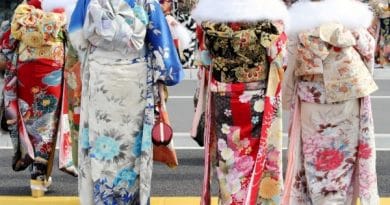Does Japan Really Have A Collectivism Culture?
Compared to Westerners, Japanese people are impersonal, unable to assert themselves, and not mentally independent on their own. That’s the common understanding of Japanese people in the world. In other words, the westerners are individualistic while the Japanese are collectivistic. As reasons for this, we face many social problems such as “lifetime employment,” “bullying,” and “KY“. However, is it true that Japan is collectivist? This article introduces Japan’s collectivism from a Japanese perspective, along with survey results and other data.
What Is Collectivism?

Collectivism, sometimes referred to as groupism, is a term describing a strong ideology or tendency to place value on the group over the individual. In the relationship between the individual and the society, it is a group-centered way of thinking in which the individual has a sense of psychological unity with the community and puts the group’s goals and interests ahead of their own.
This term is often used as a characteristic of Japanese people, who also consider themselves collectivists.
Comparison With Other Countries
So, how collectivistic is Japan in comparison to other countries? Hofstede Insights provides a simple measure of this.

According to the survey results, Japan ranks 30th out of 65 countries in terms of individualism. So, we can say that they are rather individualists than collectivists. Regarding regional trends, Western countries are individualistic across the board. While South America, Africa, and the Middle East are collectivistic, with Asia showing the strongest tendency.
What Is Hofstede Insights?
Hofstede Insights is a measure of the national character of each country, developed by the Dutch social scientist Geert Hofstede.
Hofstede’s Cultural Dimensions Theory, developed by Geert Hofstede, is a framework used to understand the differences in culture across countries and to discern the ways that business is done across different cultures. In other words, the framework is used to distinguish between different national cultures, the dimensions of culture, and assess their impact on a business setting.
corporatefinanceinstitute.com
He created that in 1980 by surveying 110,000 IBM employees in 40 countries worldwide about their behaviors and values. Therefore, it is not necessarily accurate because it is a slightly old index conducted among a somewhat limited group of IBM employees.
But it is still an interesting indicator. And looking at the numbers alone, it seems that Japan is one of the most individualistic countries in Asia.
By the way, the website that posts the Hofstede Insights allows you to quickly compare not only whether you are an individualist or not. There are also “power distance”, “uncertainty avoidance”, and other indicators for each country are available. I think it’s pretty fun to see how your country compares with other countries.
Hofstede Insights: https://www.hofstede-insights.com/country-comparison/japan/
Is Japan Really A Collectivism Country?

When was it that Japan first came to be famous for collectivism?
According to Yotaro Takano, a cognitive psychologist and professor emeritus at the University of Tokyo, the source of this common belief can be traced to an American named Percival Lowell. His first visit to Japan was in 1883. And he came and went five times in ten years, and published three books about Japan.
In one of his books “The Soul of the Far East“, he often claims that “Japan is impersonal”. And the famous book, “The Chrysanthemum and the Sword“, written by Louis Benedict, helped shape the image of Japan that we have today.
And in modern Japan, which has been Americanized, the Japanese themselves may have accepted those values. This is a pretty interesting discussion.
Harmony VS Collectivism
Personally, I feel that Japanese people value harmony rather than collectivism. I am sure it is a characteristic of Japanese people that they do not assert themselves strongly and tend not to make a scene. But I think this is not because they are willing to give up their individuality for the sake of the organization. But because they are afraid of confrontation with others.
In fact, Japanese people seem to be less inclined to actively belong to a community or group. Socializing with co-workers is only for the workplace, and the only interaction outside the office is going out for drinks after work. There are many people who don’t interact with their colleagues outside the office and have few friends, even in their private life.
Many people are too lazy to belong to any kind of community in the first place and therefore act independently. In short, they don’t like to be in groups but are afraid of clashing with others.
The Japanese language is one of the world’s top languages which prefer indirect expressions, so-called a high-context language. Still, I think this is partly due to its national characteristics.
In light of these points, at least I feel that the Japanese are not collectivist.
Conclusion

If you look through Japanese TV or news these days, you will often see negative traits claimed, such as “Japanese people are like….”. However, many of them are so baseless that it makes you shake your head.
Japan is indeed a unique country, as represented by the Galapagos Syndrome. But as a result, false perceptions have become widespread. And I believe that Japanese people themselves have come to believe those misconceptions.
In this age of globalization, where diversity is becoming more and more important, it is necessary to break free from preconceived notions and prejudices.





The visuals in your article enhanced my understanding of the content. Great use of imagery!
Thank you!